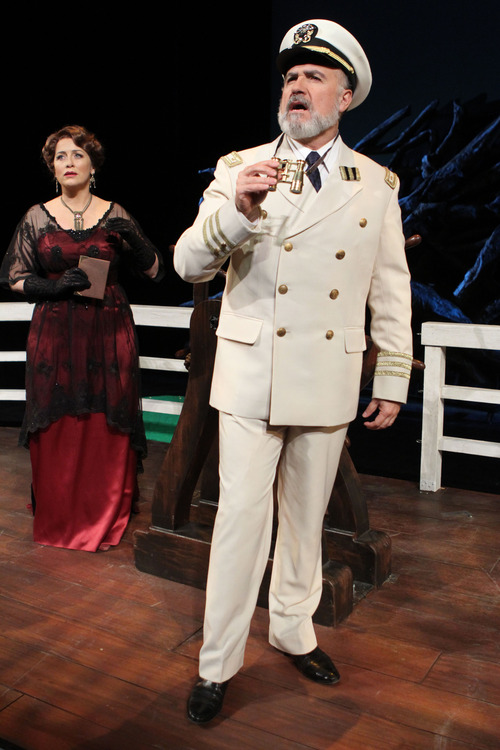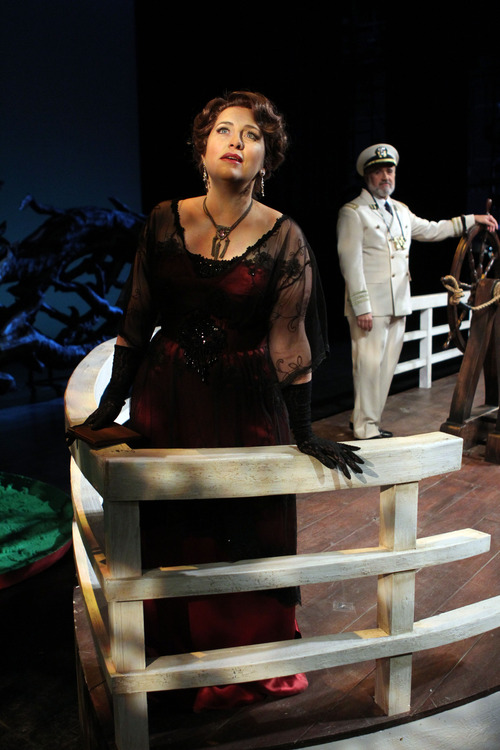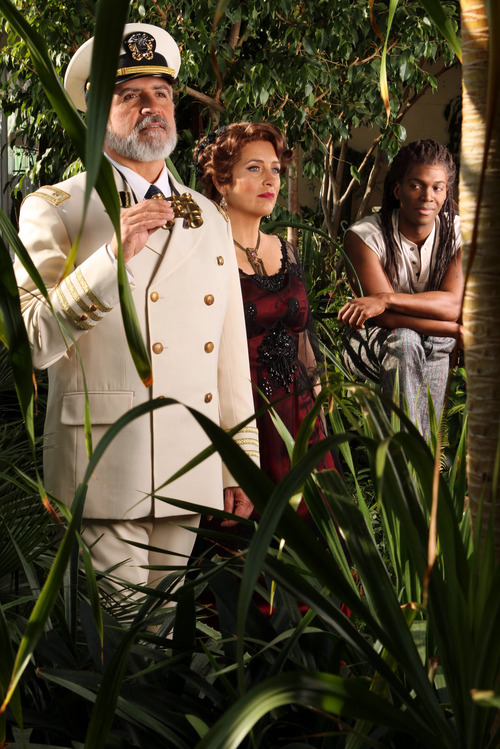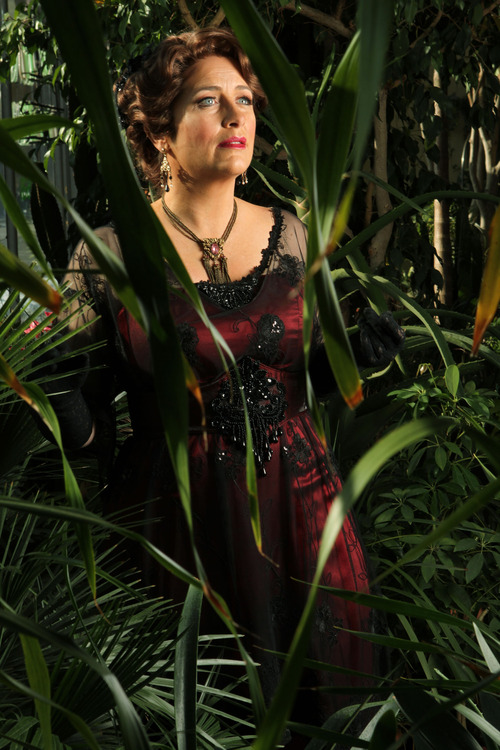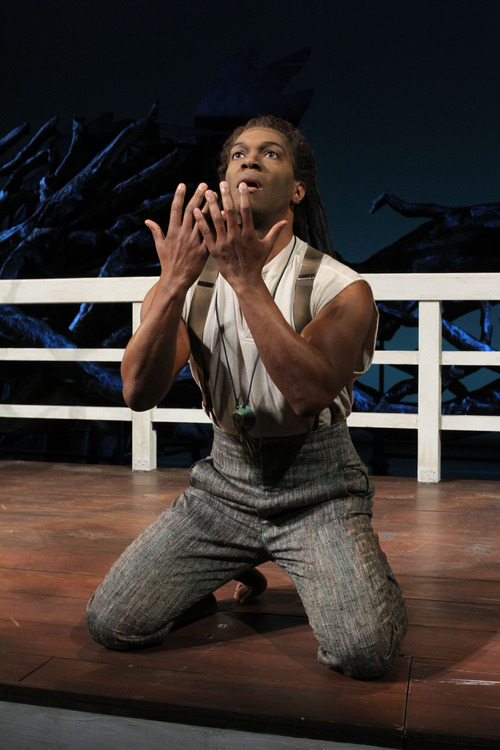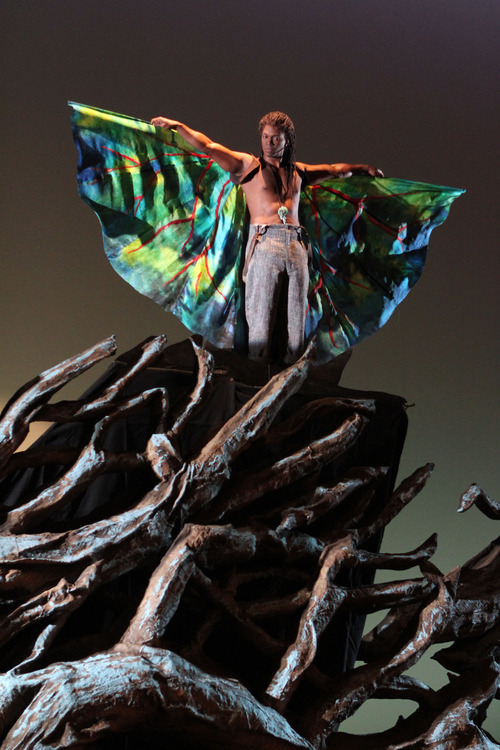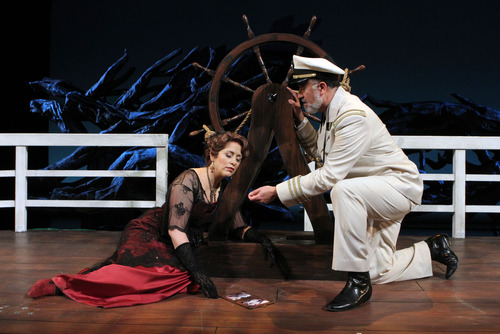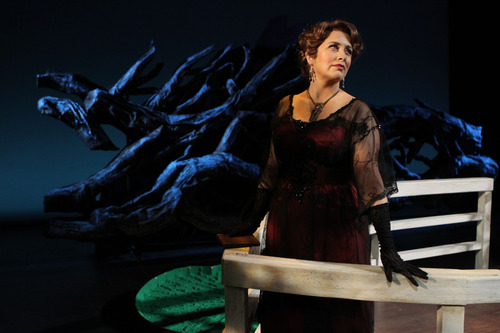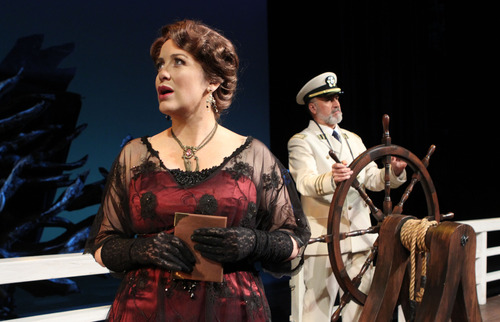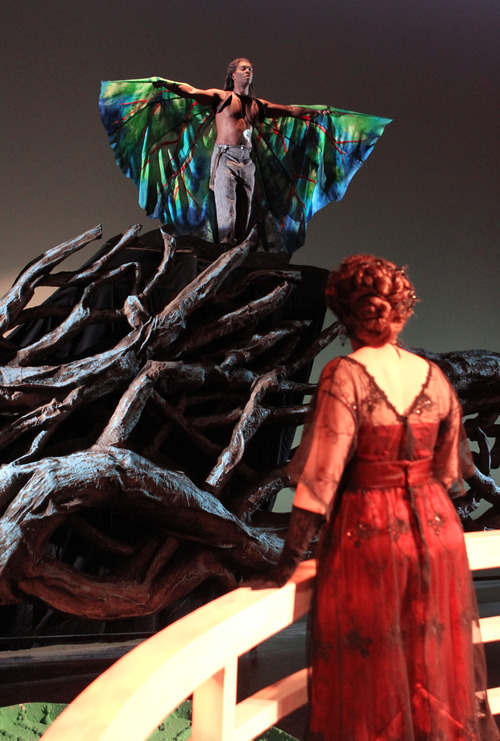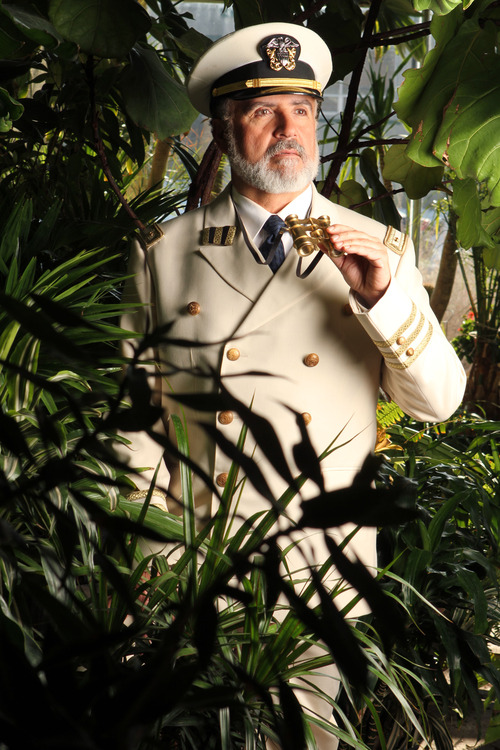This is an archived article that was published on sltrib.com in 2013, and information in the article may be outdated. It is provided only for personal research purposes and may not be reprinted.
This cold, snowy winter, Utah Opera invites listeners to escape to the Amazon rain forest when the company presents its first Spanish-language production, Daniel Catán's 1996 opera "Florencia en el Amazonas."
Catán, who died unexpectedly in 2011, worked closely with librettist Marcela Fuentes-Berain, a protégé of Gabriel García Márquez, to craft a story inspired by the writings of the great Colombian novelist.
"Florencia" tells of the literal and figurative river journey of legendary diva Florencia Grimaldi and six other characters. Their ostensible destination is Florencia's highly anticipated concert at the opera house in Manaus, Brazil. Most of the passengers — including her devoted fan and would-be biographer — have no idea that Florencia herself is aboard or that her true agenda is to reunite with her long-lost lover, the butterfly hunter Cristóbal.
The opera is about "love in many forms: young, new love; old, jaded love; lost love," said conductor James Lowe, who is back in Salt Lake City after conducting Utah Opera's acclaimed production of Carlisle Floyd's "Of Mice and Men" last May.
In addition to Florencia, passengers on the riverboat El Dorado are Paula and Álvaro, a middle-aged couple who constantly bicker, and Rosalba, the journalist who carries two years' worth of research on Florencia and hopes to land a face-to-face interview when she gets to Manaus. The Capitán, who describes himself as being married to his boat, hopes that his nephew and assistant, Arcadio, will one day succeed him, but Arcadio dreams of becoming a pilot instead. Meanwhile, Arcadio and Rosalba do their best to deny their growing attraction. A mysterious character known as Riolobo appears as a deckhand, but the audience soon sees that he is much more.
As is common in Latin American literature, "Florencia" has a strong thread of magical realism. Riolobo mediates between the natural and supernatural realms, said baritone Nmon Ford, who plays him. Ford compared Riolobo to Ariel, the magical spirit in Shakespeare's "The Tempest." Riolobo doesn't cause the pivotal storm in "Florencia," but he can direct its power on behalf of the mortals. "Riolobo sees what each character's journey will be, or should be," Ford said. "He facilitates the journey going in that particular direction for each character."
The Capitán serves a similar function in the tangible realm of the Amazon, said baritone Hector Vasquez, who plays the role. "He provides stability to the goings-on," Vasquez said. "He is the only character who is comfortable in his own skin." He's also the only one who figures out Florencia's identity.
Vasquez is playing the Capitán for the first time, but he has a long history with the opera: He has portrayed Álvaro in several productions, including the world premiere and the 2001 recording. He's switching roles at the suggestion of Utah Opera artistic director Christopher McBeth, who cast Vasquez's wife, soprano Cynthia Clayton, in the title role. Noting that Florencia and Álvaro have only one scene together, while she and the Capitán share more stage time and sing a lovely duet, McBeth asked Vasquez to consider the change; Vasquez found that his voice has mellowed enough to encompass the Capitán as well as Álvaro.
Clayton said she's thrilled to be singing her first "Florencia" after watching the opera from the sidelines for 17 years. The music is "challenging and gorgeous at the same time," she said. And what a character: Florencia is returning to her homeland, an unspecified South American country, after 20 years of superstardom abroad. She has discovered that fame and fortune don't fulfill her, and now she is coming home in search of spiritual wholeness with Cristóbal. Over the course of the opera, she also must come to terms with the fact that he might not be alive. Her concluding aria tells of a transformation into a butterfly. "There is a metamorphosis happening, whether it's literal or figurative," Clayton said.
Does she find Cristóbal? Does she live or die? "Catán himself didn't want the audience to know what exactly happened to Florencia at the end — if she found Cristóbal, or if she's dead or maybe hallucinating," said stage director José María Condemi.
One of the strengths of "Florencia" is that it's a true ensemble piece, Condemi said. "Within the first 30 minutes, every character has an aria so you know them," he said. "They each have several opportunities to shine."
Though the opera was composed at the end of the 20th century, the director and conductor said the music will feel familiar to listeners. "It's along the lines of Puccini or Ravel," Lowe said. "The singers really get to sing like opera singers. The orchestration is so colorful; it's a full-sized orchestra, a traditional operatic Puccini orchestra. It captures the warm lushness of the Amazon, what we think of as the jungle." The sounds of the marimba and steel drum are prominent.
Audiences responded so favorably when Houston Grand Opera premiered "Florencia" that the company revived it five years later, a turnaround that's virtually unheard-of in opera, Lowe noted.
"I've got to hand it to Daniel [Catán]," Ford said. "He did a good job keeping the story complex enough but also with enough clear, linear plot development. There is a clear and proper balance between the day-to-day and the mystical, spiritual stuff. The music is firmly connected with the essential human truth of the journey everybody goes on."
Take me to the river
Utah Opera presents Daniel Catán's "Florencia en el Amazonas." The opera is sung in Spanish, with Supertitles in English.
When • Jan. 19, 21, 23 and 25 at 7:30 p.m.; Jan. 27, 2 p.m.
Where • Capitol Theatre, 50 E. 200 South, Salt Lake City
Running time • Two hours, including intermission
Tickets • $13 to $78 ($5 more on performance day) at http://www.utahopera.org or 801-355-ARTS; discounts for students, subscribers and groups at 801-533-NOTE
Learn more • Utah Opera principal coach Carol Anderson, who has been closely associated with "Florencia" since its creation, will give free lectures in the theater an hour before curtain. Company artistic director Christopher McBeth will hold a Q&A in the mezzanine-level Founders Room after each performance. The company also has compiled background information at http://www.utahopera.org/connect/learning-materials.


